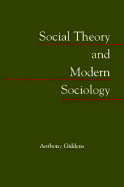A worldwide best seller by
the most influential social theorist writing in the
English language today, Anthony Giddens's "Introduction
to Sociology" continues to extend the boundaries of the
sociological imagination. Giddens's deft prose and
provocative insights turn to the process of
globalization and the myriad ways our lives are becoming
increasingly interdependent with other societies. The
text also includes a full chapter on one of sociology's
cutting-edge topics--sociology of the body--drawing
especially on the theories of Michel Foucault. Gender
and sexuality, a topic particularly important to
feminist thought, is also treated in a full-length
chapter. In addition, gender issues are considered
throughout the text. The book is lavishly illustrated
with four-color art, figures, and maps.
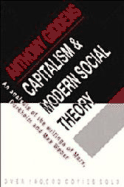
About this title:
The classsic text for any student seeking to
understand the three thinkers who established the basic
framework of contemporary sociology.
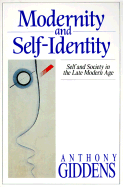
About this title:
The author argues that 'high' or 'late' modernity is
a post-traditional order characterized by a developed
institutional reflexivity. In the current period, the
globalizing tendencies of modern institutions are
accompanied by a transformation of day-to-day social
life having profound implications for personal
activities.

About this title:
This book provides a comprehensive introduction to
current debates and contemporary research. It connects
these ideas to the classical sources, concentrating on
Marx, Lenin, and Weber.
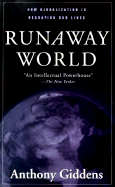
About this title:
An intellectual pioneer of Third Way politics shows
how the globalization of science, technology, and the
economy impacts every human on Earth--an enlightening
and thought-provoking read.
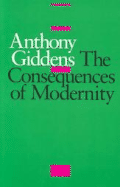
Constitution of
Society: Outline of Theory of Structuration

About this title:
This book outlines the distinctive position he has
evolved during that period and offers a full statement
of a major new perspective in social thought, a
synthesis and elaboration of ideas touched on in
previous works but described here for the first time in
an integrated and comprehensive form.
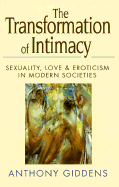
About this title:
The sexual revolution: an evocative term, but what
meaning can be given to it today? How does 'sexuality'
come into being and what connections does it have with
the changes that have affected personal life on a more
general plane? In answering these questions, Anthony
Giddens disputes many of the dominant interpretations of
the role of sexuality in modern culture. The emergence
of what the author calls plastic sexuality - sexuality
freed from its intrinsic relation to reproduction - is
analysed in terms of the long-term development of the
modern social order and social influences of the last
few decades. Giddens argues that the transformation of
intimacy, in which women have played the major part,
holds out the possibility of a radical democratization
of the personal sphere. This book will appeal to a large
general audience as well as being essential reading for
students and professionals.

About this title:
Anthony Giddens has described been as "the most
important English social philosopher of our time." Over
25 years, with a dazzling series of books that attest to
his unrelenting productivity, he has established himself
as today's most widely read and widely cited social
theorist. In recent years, his writings have become more
explicitly political, and in 1996 he became Director of
the London School of Economics and Political Science. It
is in this position that he has been accepted as the key
intellectual figure of Tony Blair's New Labour
government. Giddens's interests have always been
remarkably diverse, ranging from Continental philosophy
to self-help therapy, and his work builds on a critical
engagement with an extraordinary array of texts from
within and beyond the canon of the social sciences. His
ideas have profoundly influenced the writing and
teaching of the central ideas of the rapidly changing
Study of modernity. These seven extended interviews with
Christopher Pierson, conducted shortly after Giddens's
arrival at the LSE, seek to cover the full range of his
thought since the early 1970's, beginning with his
engagement with the makers of "classical" sociology and
concluding with his thoughts on the nature of world
politics under what Giddens terms "reflexive modernity."
The style of the interviews is conversational, and
Giddens sets forth his ideas with his customary clarity
and directness. In addition to the interviews, four
short pieces at the end of the book give examples of
Giddens's recent thought, treating Tony Blair's
political philosophy, the risk society concept in the
context of British politics, and the dangers of chemical
contamination. The volume concludeswith a conversation
between Giddens and European financier and
philanthropist George Soros.


About this title:
This is a new and revised edition of a book which has
established itself as a basic text in social theory. The
first section of the work provides a concise critical
analysis of some leading schools of thought in social
philosophy, giving particular attention to
phenomenology, ethnomethodology and Wittgensteinian
thought. Giddens concentrates primarily upon the
implications of these various perspectives for an
account of human action and its intelligibility. An
"action approach" on its own, however, will not do; in
human social life, action and structure presuppose one
another. The author therefore moves on to provide a
series of concepts relevant to understanding the
production and reproduction of society. The book
concludes with a succinct statement of some "new rules
of sociological method." Representing the first, and
most trenchant, exposition of the principles of
structuration theory, this edition also contains a
substantial new Introduction in which Giddens replies to
some of the more persistent criticisms made of the
original version and also addresses some important
issues originally discussed only in a cursory way. This
book will be of interest to students and professionals
in the areas of social theory, sociology, philosophy and
anthropology.
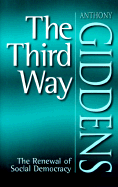
About this title:
The concept of a "third way" in politics -- an
alternative to conventional conservatism and liberalism
-- is not a new one, but it has been revitalized by a
new generation of European leaders, as Gerhard
Schroeder's defeat of Helmut Kohl in last fall's German
elections attests. The third way is also a subject of
great interest to both UK Prime Minister Tony Blair and
President Bill Clinton. Yet what is the third way?
Anthony Giddens, world-renowned social theorist,
Director. of the London School of Economics, and Blair's
"favorite intellectual, " explains in his visionary new
book The Third Way: The Renewal of Social Democracy.
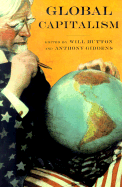
About this title:
This collection of essays on globalization includes
experts from a variety of disciplines and a range of
perspectives, including Paul Volcker, Arlie Russell
Hochschild, Robert Kuttner, and Richard Sennett.
